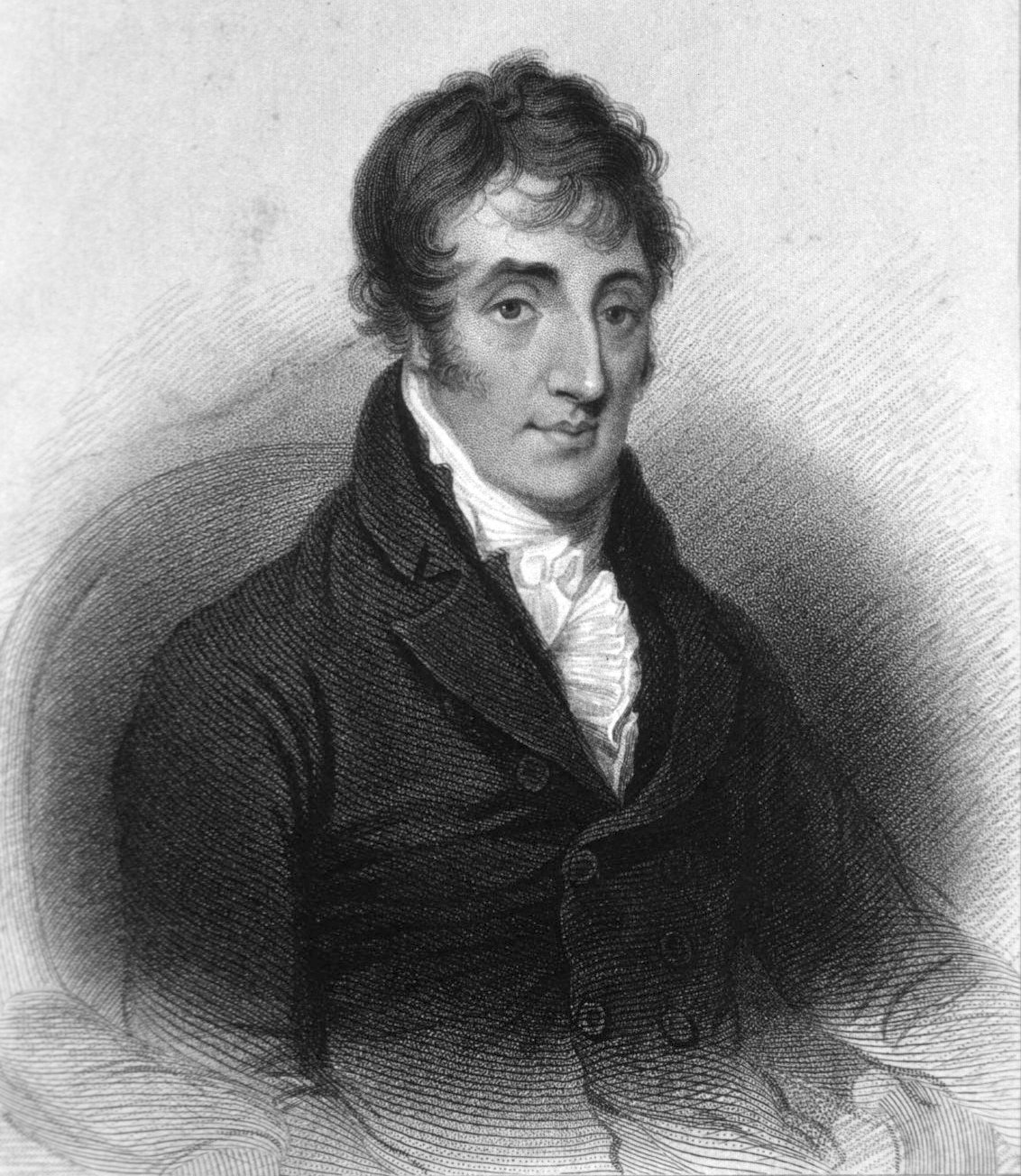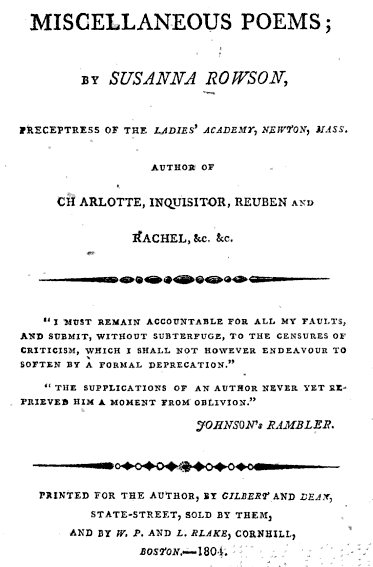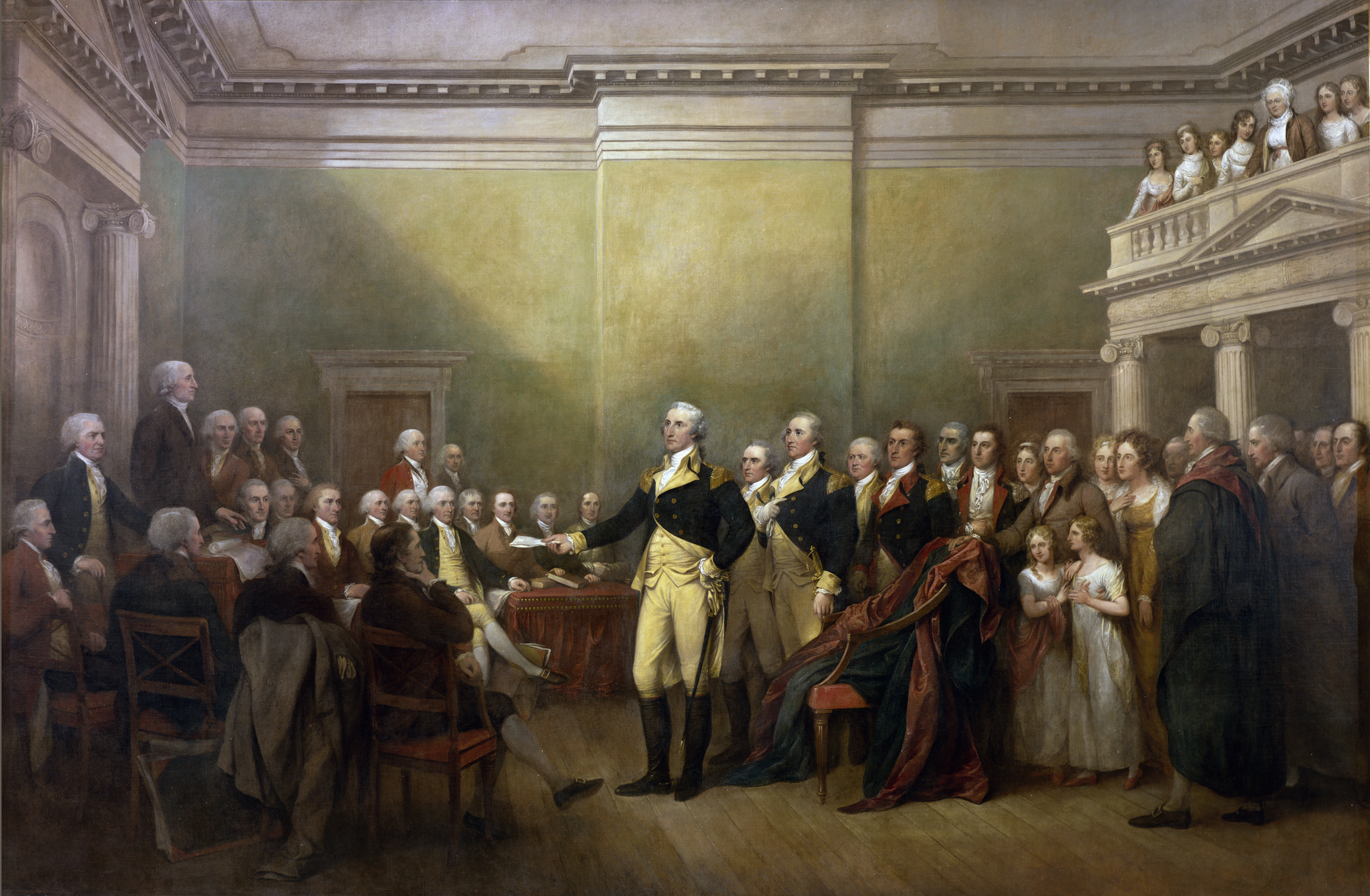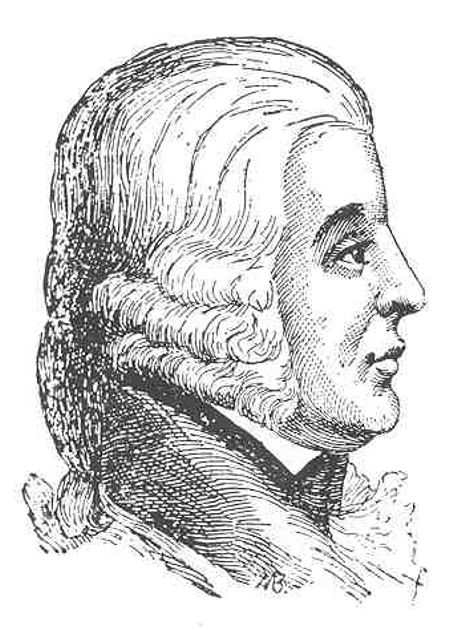|
1804 In Poetry
Nationality words link to articles with information on the nation's poetry or literature (for instance, Irish or France). Events * William Wordsworth writes " I Wandered Lonely as a Cloud", inspired by an incident on April 15, 1802, in which Wordsworth and his sister, Dorothy, came across a "long belt" of daffodils. The poem will be first published in 1807 and published in revised form in 1815. It is titled "The Daffodils" in some anthologies. Works published United Kingdom * William Blake ** ''Milton'' (including "And did those feet in ancient time") (''see'' 1808 in poetry) ** '' Jerusalem: The Emanation of the Giant Albion'' (publication concluded 1820) * Robert Bloomfield, ''Good Tidings; or, News from the Farm'' * William Lisle Bowles, ''The Spirit of Discovery; or, The Conquest of the Ocean'' * Thomas Brown, ''Poems'' * John Galt, ''The Battle of Largs'', published anonymously; the author's first published work * James Grahame, ''The Sabbath'', published anonymously * ... [...More Info...] [...Related Items...] OR: [Wikipedia] [Google] [Baidu] |
Irish Poetry
Irish poetry is poetry written by poets from Ireland. It is mainly written in Irish and English, though some is in Scottish Gaelic and some in Hiberno-Latin. The complex interplay between the two main traditions, and between both of them and other poetries in English and Scottish Gaelic, has produced a body of work that is both rich in variety and difficult to categorise. The earliest surviving poems in Irish date back to the 6th century, while the first known poems in English from Ireland date to the 14th century. Although there has always been some cross-fertilization between the two language traditions, an English-language poetry that had absorbed themes and models from Irish did not finally emerge until the 19th century. This culminated in the work of the poets of the Irish Literary Revival in the late 19th and early 20th century. Towards the last quarter of the 20th century, modern Irish poetry tended to a wide range of diversity, from the poets of the Northern school t ... [...More Info...] [...Related Items...] OR: [Wikipedia] [Google] [Baidu] |
James Grahame
Rev James Grahame (22 April 1765 – 14 September 1811) was a Scottish poet. His best-known poem, ''The Sabbath'', combines devotional feeling with vivid description of Scottish scenery. Early life He was born at Whitehill House in Glasgow, the son of Thomas Grahame, a successful lawyer. His elder brother was Robert Grahame of Whitehill. He attended University of Glasgow. Career After completing his literary course at the University of Glasgow, Grahame went in 1784 to Edinburgh, where he worked as a legal clerk, and was called to the Scottish bar in 1795. However, he had always wanted to go in for the Church, and when he was 44 he took Anglican orders, and became a curate first at Shipton, Gloucestershire, and then at Sedgefield, Durham. His works include a dramatic poem, ''Mary Queen of Scots'' (1801), ''The Sabbath'' (1804), ''The Birds of Scotland'' (1806), ''British Georgics'' (1809), and ''Poems on the Abolition of the Slave Trade'' in a joint volume on the subject with ... [...More Info...] [...Related Items...] OR: [Wikipedia] [Google] [Baidu] |
Eliza R
ELIZA is an early natural language processing computer program created from 1964 to 1966 at the MIT Computer Science and Artificial Intelligence Laboratory, MIT Artificial Intelligence Laboratory by Joseph Weizenbaum. Created to demonstrate the superficiality of communication between humans and machines, Eliza simulated conversation by using a "pattern matching" and substitution methodology that gave users an illusion of understanding on the part of the program, but had no built in framework for contextualizing events. Directives on how to interact were provided by "scripts", written originally in SLIP (programming language), MAD-Slip, which allowed ELIZA to process user inputs and engage in discourse following the rules and directions of the script. The most famous script, DOCTOR, simulated a Rogerian psychotherapy, Rogerian psychotherapist (in particular, Carl Rogers, who was well known for simply parroting back at patients what they had just said), and used rules, dictated in th ... [...More Info...] [...Related Items...] OR: [Wikipedia] [Google] [Baidu] |
Aaron Burr
Aaron Burr Jr. (February 6, 1756 – September 14, 1836) was an American politician and lawyer who served as the third vice president of the United States from 1801 to 1805. Burr's legacy is defined by his famous personal conflict with Alexander Hamilton that culminated in Burr killing Hamilton in a duel in 1804, while Burr was vice president. Burr was born to a prominent family in New Jersey. After studying theology at Princeton, he began his career as a lawyer before joining the Continental Army as an officer in the American Revolutionary War in 1775. After leaving military service in 1779, Burr practiced law in New York City, where he became a leading politician and helped form the new Jeffersonian Democratic-Republican Party. As a New York Assemblyman in 1785, Burr supported a bill to end slavery, despite having owned slaves himself. At age 26, Burr married Theodosia Bartow Prevost, who died in 1794 after twelve years of marriage. They had one daughter, Theodosia. ... [...More Info...] [...Related Items...] OR: [Wikipedia] [Google] [Baidu] |
Federalist Party
The Federalist Party was a conservative political party which was the first political party in the United States. As such, under Alexander Hamilton, it dominated the national government from 1789 to 1801. Defeated by the Jeffersonian Republicans in 1800, it became a minority party while keeping its stronghold in New England and made a brief resurgence by opposing the War of 1812. It then collapsed with its last presidential candidate in 1816. Remnants lasted for a few years afterwards. The party appealed to businesses and to conservatives who favored banks, national over state government, manufacturing, an army and navy, and in world affairs preferred Great Britain and strongly opposed the French Revolution. The party favored centralization, federalism, modernization, industrialization and protectionism. The Federalists called for a strong national government that promoted economic growth and fostered friendly relationships with Great Britain in opposition to Revolutiona ... [...More Info...] [...Related Items...] OR: [Wikipedia] [Google] [Baidu] |
Alexander Hamilton
Alexander Hamilton (January 11, 1755 or 1757July 12, 1804) was an American military officer, statesman, and Founding Father who served as the first United States secretary of the treasury from 1789 to 1795. Born out of wedlock in Charlestown, Nevis, Hamilton was orphaned as a child and taken in by a prosperous merchant. He pursued his education in New York before serving as an artillery officer in the American Revolutionary War. Hamilton saw action in the New York and New Jersey campaign, served for years as an aide to General George Washington, and helped secure American victory at the Siege of Yorktown. After the war, Hamilton served as a delegate from New York to the Congress of the Confederation. He resigned to practice law and founded the Bank of New York. In 1786, Hamilton led the Annapolis Convention to replace the Articles of Confederation with the Constitution of the United States, which he helped ratify by writing 51 of the 85 installments of '' The Federa ... [...More Info...] [...Related Items...] OR: [Wikipedia] [Google] [Baidu] |
Pen Name
A pen name, also called a ''nom de plume'' or a literary double, is a pseudonym (or, in some cases, a variant form of a real name) adopted by an author and printed on the title page or by-line of their works in place of their real name. A pen name may be used to make the author's name more distinctive, to disguise the author's gender, to distance the author from their other works, to protect the author from retribution for their writings, to merge multiple persons into a single identifiable author, or for any of a number of reasons related to the marketing or aesthetic presentation of the work. The author's real identity may be known only to the publisher or may become common knowledge. Etymology The French-language phrase is occasionally still seen as a synonym for the English term "pen name", which is a "back-translation" and originated in England rather than France. H. W. Fowler and F. G. Fowler, in ''The King's English'' state that the term ''nom de plume'' evolv ... [...More Info...] [...Related Items...] OR: [Wikipedia] [Google] [Baidu] |
John Williams (poet)
John Williams (1761–1818) was an English poet, satirist, journalist and miscellaneous writer, best known by the pseudonym of Anthony Pasquin. Life He was born in London on 28 April 1761, and was sent in 1771 to Merchant Taylors' School. There he was beaten for an epigram on Mr. Knox, the third master. At the age of seventeen he was placed with a painter, but he gave up art to become an author and translator. When he was about eighteen he wrote a defence of David Garrick against William Kenrick, earning Garrick's friendship. About two years later he went to Ireland, and during his time in Dublin edited several periodical publications. He attacked the government in the ''Volunteers' Journal'' during the administration of the Duke of Rutland, a prosecution was started against him in 1784, and he was obliged to decamp, leaving the printers to face the judgment. The same year (1784) he was associated with Henry Bate Dudley in the '' Morning Herald''. A violent quarrel broke out bet ... [...More Info...] [...Related Items...] OR: [Wikipedia] [Google] [Baidu] |
Susanna Haswell Rowson
Susanna Rowson, née Haswell (1762 – 2 March 1824) was an American novelist, poet, playwright, religious writer, stage actress, and educator, considered the first woman geographer and supporter of female education. She also wrote against slavery. Rowson was the author of the 1791 novel ''Charlotte Temple'', the most popular best-seller in American literature until Harriet Beecher Stowe's ''Uncle Tom's Cabin'' was published serially in 1851-1852 and authored the first human geography textbook ''Rowson's Abridgement of Universal Geography'' in 1805. Biography Childhood Susanna Haswell was born in 1762 in Portsmouth, England to Royal Navy Lieutenant William Haswell and his first wife, Susanna Musgrave, who died within days of Susanna's birth. While stationed in Boston her father remarried to Rachel Woodward and started a second family, and after his ship returned to Portsmouth and was decommissioned, he obtained an appointment as a Boston customs officer, bringing his daugh ... [...More Info...] [...Related Items...] OR: [Wikipedia] [Google] [Baidu] |
David Humphreys (soldier)
David Humphreys (July 10, 1752 – February 21, 1818) was an American Revolutionary War colonel and Washington's aides-de-camp, aide de camp to George Washington, a secretary and intelligence agent for Benjamin Franklin in Paris, United States Ambassador to Portugal, American minister to Portugal and then to United States Ambassador to Spain, Spain, entrepreneur who brought Merino sheep to America and member of the Connecticut state legislature. A poet and author, he was one of the "Hartford Wits." Early life He was born in what was then Derby, Connecticut, and now a part of the neighboring town of Ansonia, Connecticut, Ansonia, in the First Congregational Church parsonage, a spacious two-story house at 37 Elm St. called the David Humphreys House. He was the youngest of five children (four sons and a daughter) of the Rev. Daniel and Sarah Riggs Bowers Humphreys. Humphreys' father was parson of the church from 1733, the year after he graduated from Yale College, Yale, to 1787—a ... [...More Info...] [...Related Items...] OR: [Wikipedia] [Google] [Baidu] |
Thomas Green Fessenden
Thomas Green Fessenden (April 22, 1771 – November 11, 1837) was an American author and editor who worked in England and the United States. Biography Born and raised on the family farm in Walpole, New Hampshire as oldest of nine children, Fessenden graduated from Dartmouth College in 1796. During his college term wrote a ballad, entitled "Jonathan's Courtship", which was reprinted in England. He studied law in Vermont with Nathaniel Chipman, occupying his leisure in writing humorous poems and other papers for the ''Farmer's Weekly Museum'' of Walpole, of which Joseph Dennie was then editor. He went to London in 1801 as agent for a new hydraulic machine. The enterprise proved a failure and involved him in pecuniary difficulties. While in London, he became interested in the construction of a patent mill on the River Thames, and in this enterprise also he was completely ruined. At this time, he formed the acquaintance of Benjamin Douglas Perkins, patentee of the metallic tractors (s ... [...More Info...] [...Related Items...] OR: [Wikipedia] [Google] [Baidu] |
American Poetry
American poetry refers to the poetry of the United States. It arose first as efforts by American colonists to add their voices to English poetry in the 17th century, well before the constitutional unification of the Thirteen Colonies (although a strong oral tradition often likened to poetry already existed among Native American societies). Unsurprisingly, most of the early colonists' work relied on contemporary English models of poetic form, diction, and theme. However, in the 19th century, a distinctive American idiom began to emerge. By the later part of that century, when Walt Whitman was winning an enthusiastic audience abroad, poets from the United States had begun to take their place at the forefront of the English-language ''avant-garde''. Much of the American poetry published between 1910 and 1945 remains lost in the pages of small circulation political periodicals, particularly the ones on the far left, destroyed by librarians during the 1950s McCarthy era. Moder ... [...More Info...] [...Related Items...] OR: [Wikipedia] [Google] [Baidu] |










.jpg)